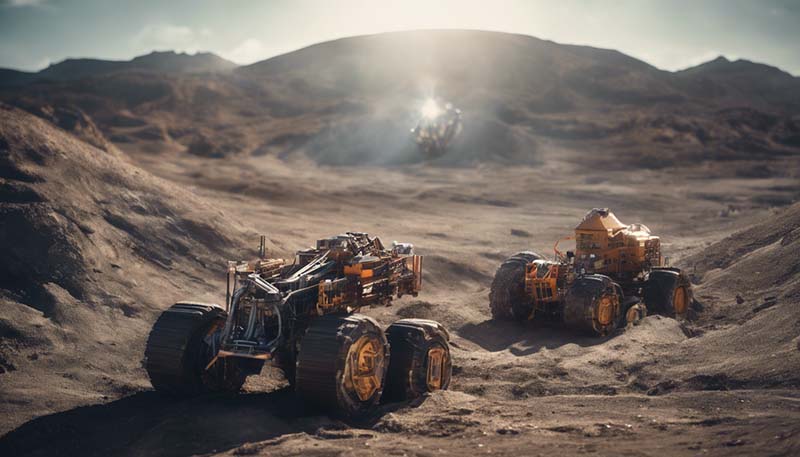The Ethics of Space Mining: Exploitation or Necessity?
The Ethics of Space Mining: Exploitation or Necessity?
As we stare into the cosmos, one question looms large: Is space mining an exploitative endeavor or a necessary step for humanity's survival and advancement? This article aims to delve into the ethical considerations surrounding the extraction of resources from celestial bodies, such as asteroids, the Moon, and Mars.
Introduction
The concept of space mining is not new. Science fiction has long explored the idea of venturing into the final frontier to extract valuable resources. However, with advancements in space technology, what was once a fantasy is now on the cusp of becoming reality. The ethical implications of this shift are complex and multifaceted.
The Argument for Space Mining
Resource Scarcity
One of the primary arguments for space mining is the finite nature of Earth's resources. As our population grows and our demand for resources increases, the pressure on our planet's ecosystems intensifies. Space mining offers a potential solution to this problem by tapping into the vast reserves of metals, water, and other materials found in space.
Technological Advancement
The pursuit of space mining can also drive technological innovation. The development of new technologies to extract and process resources in space can have spin-off benefits for industries on Earth, leading to more efficient and sustainable practices.
Advertisement
Economic Opportunities
Space mining presents significant economic opportunities. The extraction and sale of rare metals and other valuable materials could create new markets and industries, potentially boosting economies and providing a source of wealth for nations and companies alike.
The Ethical Concerns
Exploitation of Celestial Bodies
The most significant ethical concern surrounding space mining is the potential for exploitation. Critics argue that treating celestial bodies as mere resource deposits to be mined and discarded is a form of environmental degradation, albeit on a cosmic scale.
Socioeconomic Inequality
There is also the risk of exacerbating socioeconomic inequality. If space mining is dominated by a few wealthy nations or corporations, it could lead to a new form of colonialism, with the benefits concentrated among the few rather than shared more widely.
International Regulation and Cooperation
The lack of clear international regulations governing space mining raises concerns about potential conflicts over resource rights and the possibility of an unregulated "space race" for resources.
Balancing the Equation
To address these ethical concerns, several measures can be taken:
Developing International Laws
The creation of international laws and agreements to govern space mining activities is crucial. These laws should ensure that the benefits of space mining are shared equitably among nations and that the activities are conducted in a sustainable and environmentally responsible manner.
Promoting Inclusive Participation
Encouraging participation from a diverse range of nations and stakeholders can help to prevent the monopolization of space mining by a few entities. This includes supporting the development of space programs in developing countries and fostering international collaboration.
Investing in Sustainable Technologies
Investing in research and development of sustainable space mining technologies is essential. This includes technologies that minimize the environmental impact of extraction, as well as methods for recycling and reusing resources to reduce waste.
Conclusion
The ethics of space mining are not black and white. While the potential benefits are significant, so too are the ethical concerns. It is up to policymakers, scientists, and the global community to navigate this complex landscape and ensure that as we reach for the stars, we do so responsibly and sustainably.

Word Count: 500
Comments